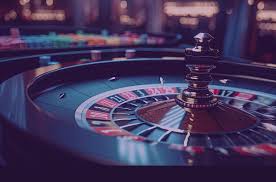Casino and gambling have long captured human imagination. From ancient dice games to the glitzy halls of Las Vegas and the convenience of online platforms, people have always been drawn to the thrill of taking risks for the chance of winning Slot Gacor. Today, casino gambling is not only a popular pastime but also a massive global industry worth billions of dollars.
The History of Gambling
The roots of gambling can be traced back thousands of years. Archaeologists have discovered dice-like objects in Mesopotamia that date as far back as 3000 BC. Ancient Chinese societies developed lottery-style games, while the Greeks and Romans placed bets on sports, chariot races, and gladiatorial contests.
The word casino comes from the Italian word casa, meaning house. Originally, casinos were small villas or social clubs where people gathered for leisure and entertainment. By the 17th century, the first official gambling houses appeared in Europe, most notably in Venice. Later, glamorous destinations like Monte Carlo and Las Vegas transformed casino gambling into a worldwide phenomenon.
Why People Love Casino Gambling
The popularity of casino gambling can be explained by psychology. People are naturally drawn to excitement, risk, and reward. Casinos amplify this appeal by creating immersive environments filled with bright lights, music, and luxury.
The key factor is unpredictability. Whether it’s watching the roulette wheel spin, waiting for a slot machine’s reels to stop, or calculating the next move in poker, the uncertainty creates suspense and adrenaline. For many, the entertainment value is just as important as the possibility of winning money. Casinos also serve as social spaces where people interact and share the thrill together.
Popular Casino Games
Casino gambling includes a variety of games that appeal to different personalities and skill levels. Here are some of the most popular:
- Slot Machines: Known for being simple, colorful, and fast-paced, slots are the most widely played casino games worldwide. Progressive jackpots make them even more exciting.
- Blackjack: A card game based on strategy, where players compete against the dealer to get as close to 21 as possible without going over.
- Roulette: Famous for its spinning wheel, roulette allows players to bet on numbers, colors, or sections.
- Poker: Unlike many chance-based games, poker involves strategy, psychology, and skill. Tournaments like the World Series of Poker have made it a global favorite.
- Baccarat: Known as a high-roller game, baccarat is simple but intense, offering quick rounds and strong betting action.
The Digital Era: Online Gambling
Technology has revolutionized casino gambling. Online platforms now give players access to thousands of games without leaving their homes. With mobile apps, people can gamble anytime, anywhere.
Live dealer games have made online gambling more realistic by streaming real dealers to players’ screens. The use of cryptocurrencies like Bitcoin and blockchain technology has added security and transparency. This convenience has attracted millions of new players, making online gambling one of the fastest-growing sectors in the industry.
Risks of Gambling
Although casino gambling can be exciting and entertaining, it comes with risks. One of the biggest concerns is problem gambling or addiction. The thrill of winning can sometimes lead people to chase losses, resulting in financial and emotional Lucky99.
To counter this, responsible gambling practices are encouraged. Casinos—both physical and online—now offer tools such as deposit limits, reminders, and self-exclusion options. Recognizing gambling as entertainment, rather than a guaranteed way to make money, is essential for safe enjoyment.
Economic and Social Impact
Casinos are powerful economic engines. They create jobs, generate billions in revenue, and attract millions of tourists every year. Las Vegas, Macau, and Singapore are prime examples of cities thriving on the casino industry. Online gambling also contributes significantly to economies by providing licensing fees and taxes.
However, critics point out the social challenges associated with gambling, including addiction, debt, and crime. Governments regulate casinos to ensure fairness, protect consumers, and limit harmful consequences.
Myths and Realities of Casino Gambling
Casino gambling has always been surrounded by myths. Many players believe in “hot streaks,” lucky numbers, or that slot machines are “due” for a payout. In reality, most casino games are based on random outcomes and probabilities.
That said, games like poker and blackjack involve skill, strategy, and decision-making. Players who study strategies and manage their money wisely often do better than those who rely on superstition.
The Future of Casino Gambling
The future of casino gambling is shaped by technology and innovation. Virtual reality (VR) casinos are emerging, allowing players to step into immersive 3D environments. Artificial intelligence (AI) is being used to personalize gaming experiences and detect signs of problem gambling.
Esports betting is also rising, attracting younger generations who are more interested in digital competitions. Mobile technology and cryptocurrency will likely continue to expand the reach and accessibility of casino gambling worldwide.
Conclusion
Casino and gambling have been part of human culture for thousands of years. From ancient dice games to today’s online platforms, they continue to combine chance, risk, and entertainment. Casinos contribute to economies and provide excitement to millions of people, but the risks must not be overlooked. Responsible gambling ensures that the experience remains safe and enjoyable.
In the end, casino gambling is not only about winning or losing—it is about the thrill, the atmosphere, and humanity’s timeless fascination with luck and fortune.

